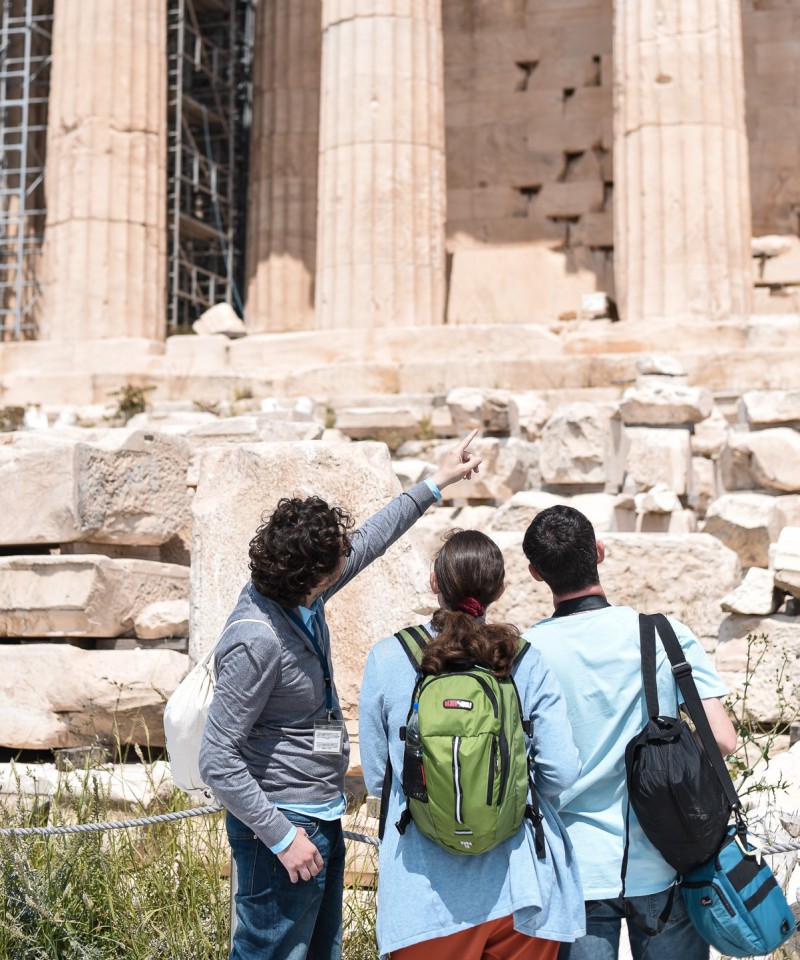
Money in Greece: ATMs, Credit Card Payments, Cash
Key Takeaways
- Money in Greece is a significant factor you should consider when visiting the country.
- Greece uses the euro as its currency, and businesses only accept Euros for payment.
- It's a good idea to carry some Greece currency for cash transactions, especially in remote areas.
- The best way to get euros in Greece is via an ATM or to exchange American dollars for euros before arriving.
- Credit and debit cards are widely accepted in Greece, but it's important to be cautious of bank fees and to confirm that a business accepts cards before ordering.
Wherever you travel, you need money. When planning a trip to explore multiple islands and archaeological treasures or soak up the sun on a Mediterranean beach, you need to think about how you'll manage your money in Greece.
Our practical guide provides everything you need to know about money in Greece, so you can enjoy Greek culture without worrying about finances and focus on the many reasons to visit Greece, which are more than you'd expect.
Understanding Currency in Greece
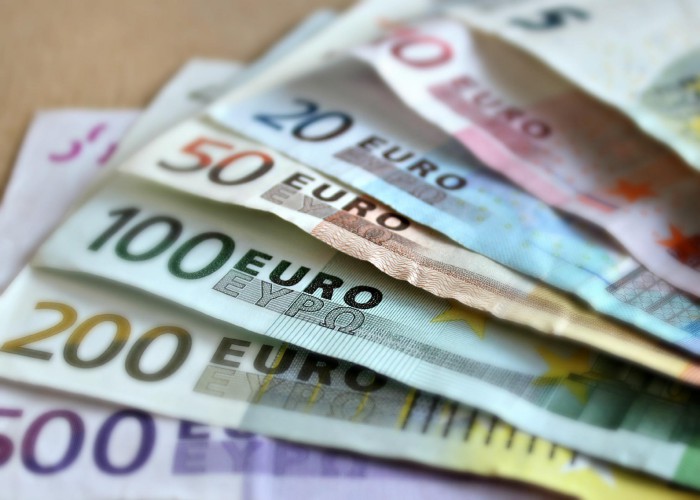
Greece is a member of the European Union and thus uses the euro as currency. Euros come in both coins and paper currency, including:
- 1, 2, 5, 10, 20, and 50-cent Euro coins
- 5, 10, 20, 50, 100, and 200 Euro bills

Greek businesses only accept Euros for payment and will decline any foreign currency due to the foreign transaction fees. The law requires that businesses offer a point-of-sale device for cashless transactions, but the machines aren't always reliable in many areas (especially remote or rural spots). So it's a good idea to carry about 100 Euros of Greece currency to pay for a souvenir or a delicious Greek meal if need be.

The exchange rates for Greek currency constantly fluctuate, so check the rate before you withdraw money from your bank account and exchange currency.
The place where you exchange your own currency for Euros matters too. Please keep in mind that money exchanges in the airports, hotels, and exchange bureaus in tourist areas almost always have less favorable rates than ATMs, Greek banks, credit cards, or your national bank.
As a result, your bank account can potentially have a dent in it that won't be from your spending habits during your greek vacation but from Greece currency rate and bank fees.
Why You Should Avoid Exchanging Money in Greece
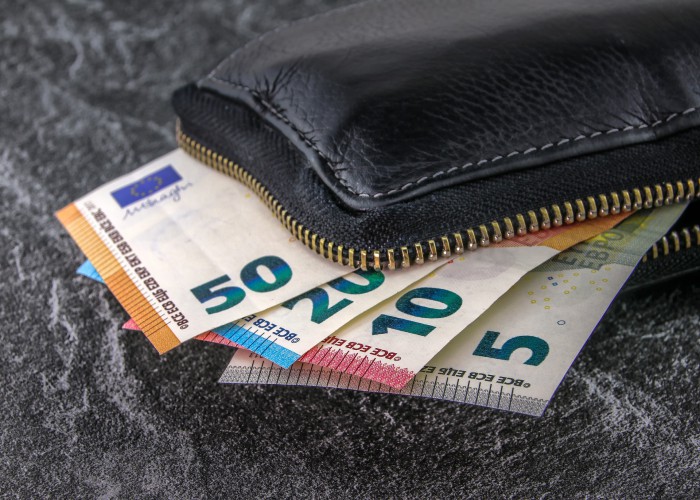
The best way to get Euros in Greece is via an ATM or to exchange American dollars for Euros before you arrive. The exchange rate is more favorable, and the process is more convenient.
It can take up to an hour or longer to exchange money at a Greek bank — time you would much rather spend exploring the Acropolis or taking a cultural tour.

If you use currency exchanges in Greece, avoid accepting bills larger than 50 Euros. You may encounter hassles when using larger bills; some businesses cannot (or will not) provide change for large bills.
Paying With Credit or Debit Cards in Greece
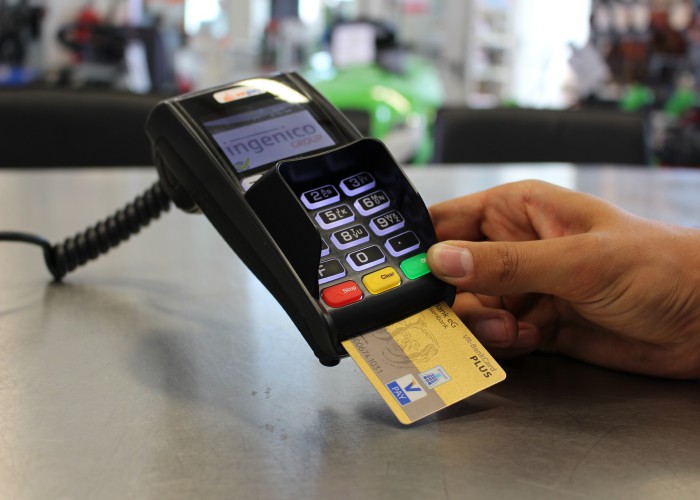
Many visitors opt to use a credit or debit card for travel money in Greece. In the past, finding businesses that accept credit cards was challenging, but the Greek government actively encouraged businesses to accept cards, so you no longer need to withdraw money. That, however, doesn't mean you shouldn't be cautious of bank fees.

You can expect most hotels, fuel stations, chain stores, and small businesses in cities to have a credit card machine and accept MasterCard and Visa.
Having a credit card machine does not mean a business will always use it, though. If you plan to use a card to pay for a meal in a bar or taverna, confirm they can take the card before you order. Broken or faulty machines are common in many places.

A credit card is a convenient way to make purchases without worrying about exchanging or withdrawing money, worrying about currency conversion fees, and carrying euro banknotes on you. The card issuer automatically converts the charge to American dollars, plus an exchange fee of up to 3%.
Some companies also charge a foreign transaction fee; consider using a credit card with travel benefits like no transaction fees, lower exchange rates, and travel assistance to save money and headaches.
How to Safely Use Credit Cards for Travel Money in Greece
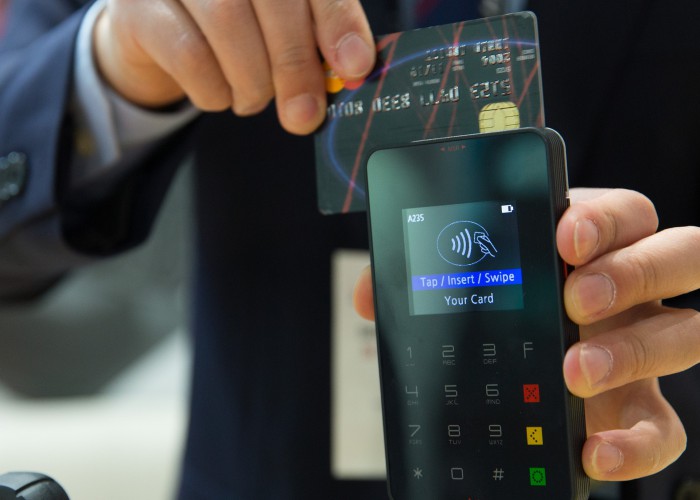
Greek credit card machines use a chip and PIN system, like the rest of the EU. This means you must input a four-digit PIN to make a credit card purchase. If you don't have, or don't know, your credit card PIN, contact your card issuer before leaving for your trip and spending money.
It's a good idea to let your credit card company know about your travel plans before you leave the country. This way, you can avoid having transactions flagged for fraud or having your card frozen while you're away.
You can also get the most up-to-date information about transaction fees, currency exchange fees, and withdrawal limits.
Using ATMs in Greece
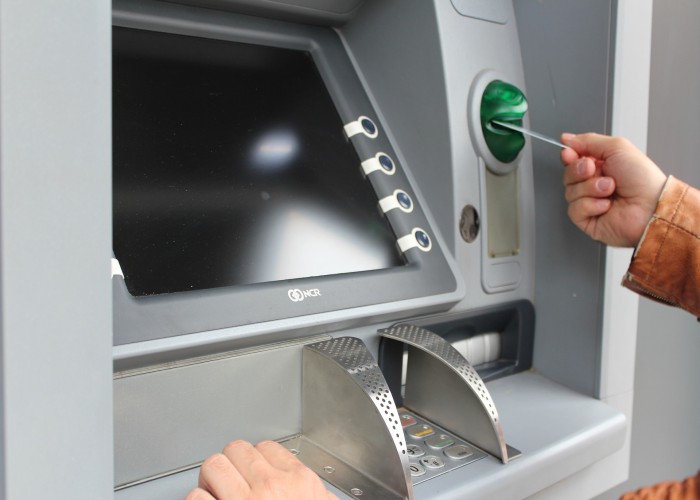
Using ATMs to withdraw Euros is another way to avoid the exorbitant currency exchange fees of many currency exchange offices, while there won't be any hidden credit card fees that will stop you from spending money to your heart's content.
Greek banks charge a transaction fee of a few Euros to use a foreign ATM card, but the cost is still less than a money exchange.
It's usually easy to find ATMs in Greece. Every populated area, especially tourist areas, has an ATM. You can typically find them in the following locations:
- Supermarkets
- Airports
- Ferry stations
- Greek banks
- Metro stations
- Major tourist attractions

ATMs are the easiest way to get money in Greece, but keep these six tips in mind when using them:
- When you can pay the transaction fee in local or foreign currency, choose the local currency option, as this will be less expensive.
- Know your bank's withdrawal limits, so you do not try to take out more cash than allowed.
- Withdraw a few hundred Euros at a time to avoid paying too many transaction fees. Carry only what you need, and store the rest securely.
- Expect ATMs in remote areas like Peloponnese to run out of cash; make sure to have plenty of Euros on you when you visit.
- Check your bank account frequently. Greece is a safe country, but tourists can become fraud victims due to compromised ATMs. Call your bank to report any strange activity.
- Carry a backup card in case of a lost, stolen, or compromised card.
Making Cash Payments in Greece
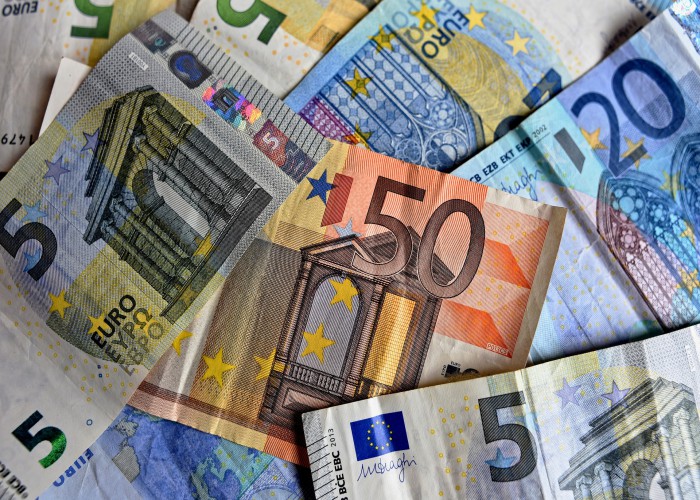
Major tourist areas in Greece, like Athens and Thessaloniki, are mostly cash-free and will accept credit and debit cards and contactless payments. Plastic money is widely accepted in Greece, and the exchange rates are rather favorable.
Still, it would be best if you carried some cash, as many street vendors, artists, and small cafes only accept cash, while also cash is the preferred method of tipping in Greece.
You will also need cash if you're taking a tour of the Greek countryside or one of the more remote islands, which may not have ATMs or credit card point-of-sale machines.
Final Thoughts
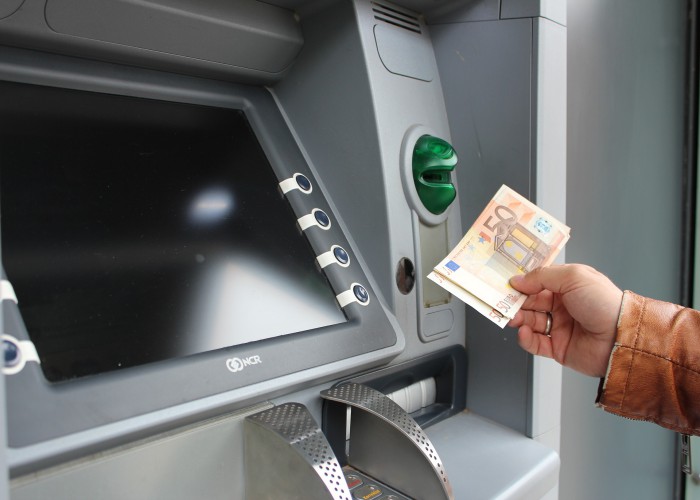
Greece is an incredible place to explore. Preparing yourself with multiple forms of travel money in Greece, both cash and credit and debit cards, ensures you can cover your excursions, meals, and purchases without hassles.
For more help planning an exciting Greek vacation, check out our Greece itineraries, or contact the travel professionals of Greeking.me at (518) 406-8975 for more information about unique tours, excursions, and experiences in the Greek Isles.







